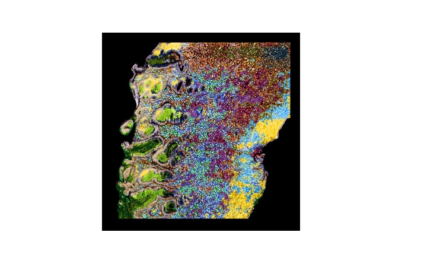Two studies will evaluate circulating tumor DNA as a guide for post-surgical cancer treatment decisions.
Mass General Brigham has initiated two clinical trials to study Haystack Oncology’s minimal residual disease (MRD) circulating tumor DNA technology as a guide for post-surgical treatment decisions in cancer patients.
The trials will evaluate how ctDNA testing can inform treatment strategies for patients following surgical resection of their tumors. The studies represent an expansion of personalized medicine approaches in oncology, using molecular diagnostics to detect microscopic amounts of remaining cancer cells that traditional imaging cannot identify.
Haystack’s MRD technology analyzes circulating tumor DNA in blood samples to detect residual cancer cells after primary treatment. This approach aims to identify patients who may benefit from additional therapy and those who might be spared unnecessary treatment.
Clinical Trials Investigating Haystack MRD
The two prospective clinical trials aim to investigate Haystack MRD as a minimally invasive tool to help guide clinical decisions and its impact on risk stratification and enabling early detection of residual disease in cancer types that currently lack robust options for monitoring and risk assessment. Both studies will use Haystack MRD to analyze samples from patients at multiple times during and after treatment to evaluate the clinical usefulness of Haystack MRD in the clinic.
“Cancer liquid biopsy has the potential to revolutionize cancer diagnosis, treatment monitoring, and the detection of minimal residual disease (MRD) soon after therapy—helping to better personalize patient care,” says Dan Faden, MD, FACS, head and neck surgical oncologist and scientist at Mass Eye and Ear and an expert in head and neck cancer liquid-biopsy research, in a release. “Given its promise, studying liquid biopsy in clinical contexts such as MRD is a major focus of our laboratories and clinical services.”
A growing body of research underscores the potential role of ctDNA MRD tests to identify residual or recurring cancer in solid tumors. In April 2025, a study found that ctDNA testing using Haystack MRD was a “reliable liquid biopsy surrogate” that identified clinical complete response at a median of 1.4 months compared to over six months using imaging tests.
Nearly all oncologists (96%) in a recent survey by The Harris Poll for Quest Diagnostics, parent company of Haystack Oncology, found that MRD testing has the potential to identify cancer recurrence earlier than traditional methods.
We Recommend for You:
ID 118906129 | Medical © Leowolfert | Dreamstime.com





